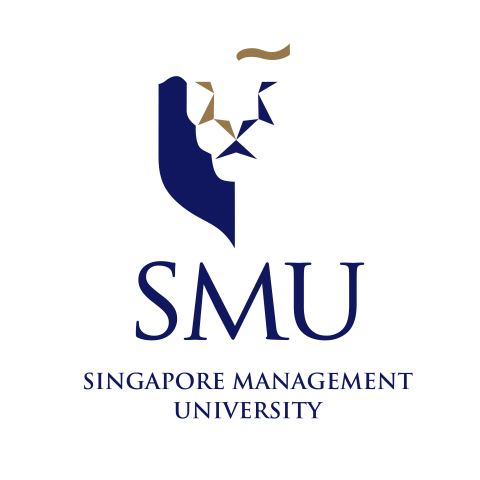
Making sustainability part of university DNA
You may also like
An organisation can signal its commitment to sustainability through green certification and labels, or via marketing campaigns with messages of environmental stewardship. However, making bold statements and focusing solely on operational changes such as the eradication of single-use plastics is not enough to drive meaningful change. Instead, it’s the setting of specific and achievable goals and ensuring organisation-wide involvement that are more important.
Some organisations embark on the sustainability journey with 1) lofty, non-specific goals or without getting all levels of the organisation involved; 2) haphazard implementation of a sustainability blueprint; 3) lack of technical skills to measure GHG emissions or to conduct materiality assessments; or 4) insufficient alignment of the sustainability plan with key business goals. These factors lead to problems that hinder organisations from reaching their sustainability goals.
Higher education institutions (HEIs) have opportunities to foster sustainability and to become carbon neutral. What does it take to engage constructively with sustainable development and to contribute to the well-being of planet and people? Here, we share insights from a recent study of one of Asia’s foremost garden destinations to illustrate how embedding sustainability into induction training can support organisation-wide change.
In our case study, Enhancing the Sustainability DNA of Singapore’s Gardens by the Bay through Induction Training, we highlight sustainability-related challenges and develop induction-training solutions that can be applied by human resource teams in support of the overall mission and vision of the organisation.
This endeavour has broader significance: developing a positive sustainability mindset among participants of an induction training programme is one thing, but to make it stick so that staff initiate greener actions towards a more sustainable future once they have completed the training is another.
- THE podcast: universities aren’t too small to lead the climate crisis fight
- Charting a shared path to net zero universities
- Setting scenarios for a university adapted to climate change
While higher education institutions (HEIs) are facing specific challenges in this regard, such as resistance to change, unsustainable travel patterns, the lack of a whole-institution implementation approach or the emphasis on mono-disciplinary research, they also have opportunities to address sustainability-related issues. Examples include improving the environmental performance of campus buildings, establishing effective governance structures such as transdisciplinary task forces, setting up a regional HEI sustainability network so that latecomers can catch up, and supporting new forms of research and teaching such as citizen science or living energy labs.
Linking induction training to the organisation’s sustainability action plan can help to motivate employees to implement achievable change initiatives, which in our Gardens by the Bay case study included responsible printing, meeting sustainability reporting requirements, participating in the organisation’s tree-planting scheme, reducing water and energy use, and composting.
One key takeaway from this learning journey was that sustainability cannot be an afterthought; we need to be conscious of how we operate and manage institutions and businesses and how these will impact the environment, society, community and stakeholders.
Sustainability-based induction training programmes have a role to play in creating meaningful change, and how businesses, including HEIs, can inject sustainability into their organisational DNA.
Starting on the right foot
So, the question now is, why are sustainability-based induction training programmes important? Induction training programmes, conducted when an employee joins the organisation, establish a shared language and platform for organisations to efficiently manage and communicate the importance of balancing economic growth, social well-being and environmental care.
All too often, organisations start and end with the environment in pursuing their sustainability efforts. They should, instead, approach sustainability from the inside out, starting with organisational culture change and their employees.
Singapore Management University (SMU) also engages with stakeholders and partners to further the discourse on sustainability through initiatives such as its sustainability blueprint, professional training that links career advice to sustainability, and postgraduate courses to equip students with key competencies for future green jobs across industries and sectors.
Aligning students, faculty and staff on the same page and ingraining sustainability into the organisational culture is never easy. Taking small, well-planned steps such as sharing best practices – such as environmental, social and governance (ESG) frameworks – internally, rolling out needs-based courses on sustainability topics for employees or appointing champions to execute and monitor strategic actions can help to achieve sustainability goals and strengthen accountability.
If we look at sustainability from the perspective of being thoughtful and mindful about how organisational activities (whether doing business or creating new research knowledge) affect and impact our stakeholders, then we will start to think more deeply about our decisions, actions and omissions in a responsible manner.
By incorporating sustainability principles into policies, plans and programmes and engaging new hires in experiential activities (such as carbon-offset quantification, hands-on waste segregation and treatment, or tree-planting), organisations emphasise to their employees the priority, importance and significance of sustainability. This approach ensures that new hires not only understand but also embrace the organisation’s commitment to sustainability, setting the stage for a workforce equipped with the skills to support green transition efforts.
Three tips for organisations
Here are three tips for organisations that want to integrate sustainability DNA into their operations and create meaningful change:
1. Increase understanding of the crisis of sustainability
- Be aware of sustainability issues and their effects on planet and people
- Share “good” and “best” sustainability practices
- Appoint sustainability champions and run pilot programmes in order to lead by example and celebrate small wins.
2. Ensure that induction training programmes:
- Enable staff to understand the organisation’s strategic approach to sustainability, and how they can contribute to the achievement of relevant sustainable development goals (SDGs)
- Cover trends around emerging skills in the green economy
- Incorporate ESG initiatives and commitments
- Empower new hires to support aspirational sustainability goals of the organisation by engaging them in experiential activities (such as tree planting).
3. Explore programmes as starting points
- Know the 17 SDGs of the United Nations and the resources provided by the UN Global Compact
- Make use of government resources and grants to support your sustainability journey (in Singapore, examples include the Enterprise Sustainability Programme and SkillsFuture Singapore)
- Check out the sustainability-related courses offered by Institutes of Higher Learning (both online and in person)
- Learn from educational institutions that offer professional training programmes, such as online course providers, sustainable finance academies and umbrella bodies.
Thomas Menkhoff is a professor of organisational behaviour and human resources (education) and Kevin Cheong is an adjunct teaching mentor, both at Singapore Management University.
This is an edited version of “Cracking the code: An introduction to incorporating sustainability into organisational DNA through induction training”, which was first published on City Perspectives on 26 June 2023.
If you would like advice and insight from academics and university staff delivered direct to your inbox each week, sign up for the Campus newsletter.




